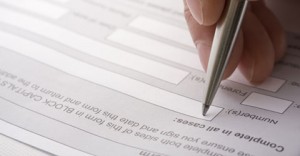LEASEHOLDER REPAIRS
Regular repairs and home improvements can increase your home’s value and keep you and your household safe.
Leaseholders are responsible for repairing and maintaining most inside parts of their home, including:
- Internal non-structural walls, floors and ceilings
- Internal decorations
- Kitchen units, toilets, sinks, baths and other fixtures and fittings
- Individual heating systems, flues, plumbing and electrics that serve your property only
- Servicing gas appliances annually.
We are responsible for repairing and maintaining the building’s structure and the common areas, including:
- All structural walls, roofs, window frames, foundations, shared drains and external decorations
- All the building’s internal and external communal areas, such as internal decorations to communal areas and repairs to fences, footpaths and boundary walls
- Communal heating systems, including radiators and pipework.
For a summary of your repair responsibilities, click here:
![]() PDF List of Leaseholder Repairs Responsibilities
PDF List of Leaseholder Repairs Responsibilities
Home improvements and alterations
FREEHOLDERS
If you are a freeholder, any alterations you make will be subject to planning and building regulations. For more information, contact Lambeth Council on 020 7926 1000.
LEASEHOLDERS
Leaseholders must get written permission from Lambeth Council before carrying out any alterations inside your home. This is known as Landlord’s consent and is different to planning consent or building’s consent. Getting the Landlord’s consent is a condition of your lease.
Permission will normally be granted for reasonable alterations. However it may be refused if it is likely to cause a noise nuisance in neighbouring flats. Structural alterations may also be refused, for example knocking down supporting walls.
In some circumstances, conditions may apply to certain alterations. For example, if you wish to replace your windows, you may need to replace them with a particular style that suits the rest of the building. Similarly, replacement front and back doors must meet current fire-safety regulations.
To apply for Landlord’s consent, please submit your written request along with:
- details of the work, including plans and drawings
- necessary statutory consent including planning permission and building consents if applicable
- required building regulation certificates
- required health and safety certificates
- application fee of £250.
It is recommended that you tell your insurer about the work, as they may need to change your policy.
Reporting a repair
You can report a repair to by contacting the office.
When you report a communal repair, you must tell us the exact location. For example, tell us the relevant block numbers and as much detail as possible about the exact location of the fault. If there’s a problem with a street lamp, look for the unique number it carries and report this to the office.
Emergency repairs reported outside normal hours
If you have an emergency after outside of office hours (9am – 5pm Monday to Friday) and on weekends or on bank holidays, call the emergency services on 020 7926 6666.
A repair is an emergency when the fault could cause serious health and safety problems or severe damage to your home if not fixed or made safe. Emergencies include:
- Total loss of electrical power to a block
- Total loss of mains water supply to a block.
This does not include loss of service caused by your water, gas or electricity providers.
The cost of the emergency repairs service is paid through your administration or management charge.
However, if you call out the emergency service unnecessarily, we may charge you separately for the cost of any work done.

